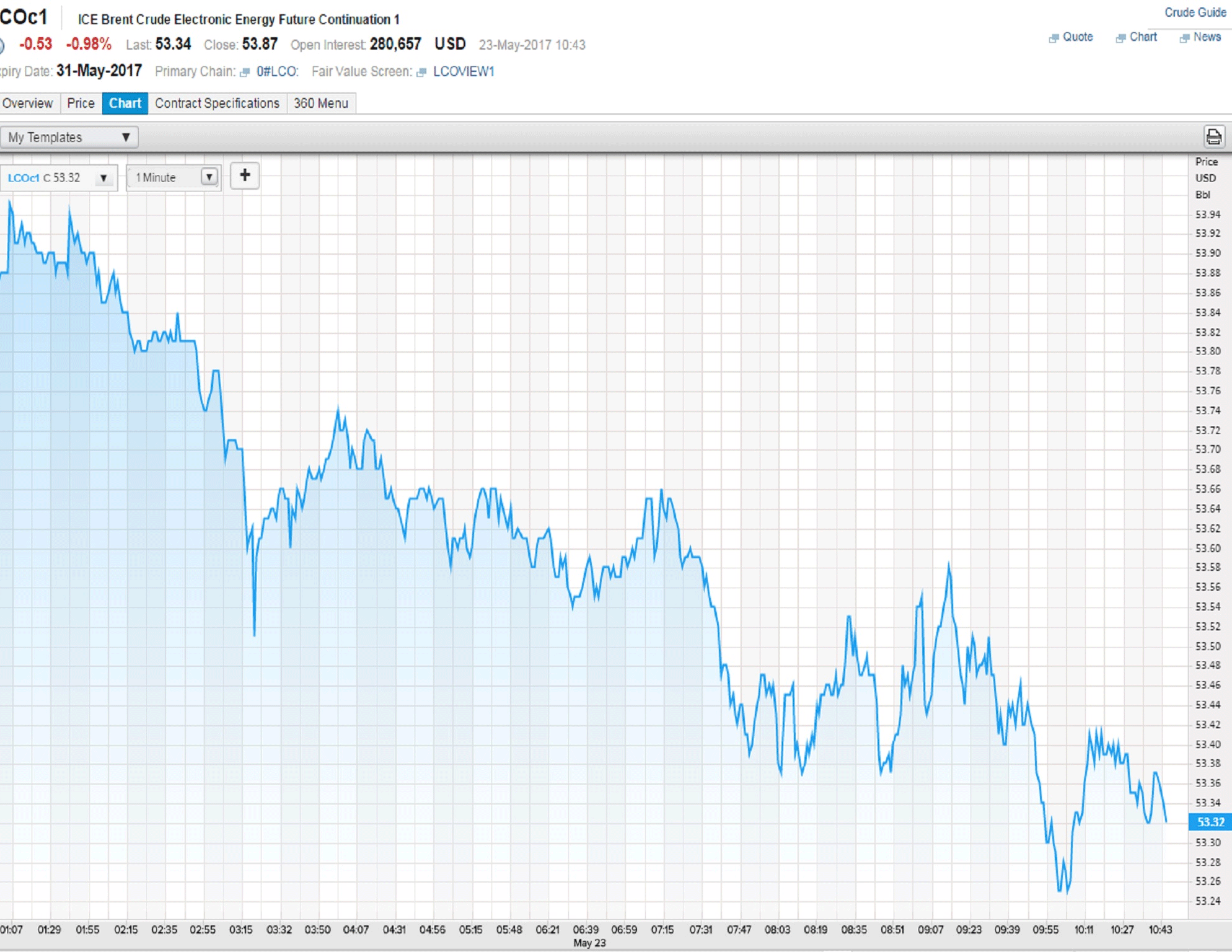Trump budget proposal: Oil prices fall as Donald Trump plans to sell off reserves
The White House said that it plans to sell off half of the 688 million-barrel oil stockpile from 2018 to 2027, in a bid to raise $16.5bn to help balance the budget

Oil prices fell on Tuesday, pressured by Donald Trump’s plans to sell off half the US’ oil stockpile over the next decade.
According to data from Reuters, Brent crude was trading around 0.9 per cent lower late morning in London at just over $53 a barrel.
The White House said that it plans to sell off half of the 688 million-barrel oil stockpile from 2018 to 2027, in a bid to raise $16.5bn to help balance the budget.
Strategists said that this scale of such a sell-off could send shockwaves through the oil market which has in recent years already been battling a persistent glut.
Some said it could undermine efforts by OPEC and other major oil producers, to moderate that oversupply.
For the time being, however, the US budget, which is due to be delivered by Congress on Tuesday, is only a proposal.
OPEC and other major producers are due to meet on 25 May and are expected to extend an existing pledge to cut output by 1.8 million barrels per day to the whole of 2017 and the first three months of 2018. Previously the deal had just applied to the first half of this year.
In 2014, a global oil glut sent Brent crude tumbling from above $100 a barrel to around $50.
It slipped further throughout 2015, hitting less than $40 a barrel in early 2016 – a 13-year low – but was around 35 per cent higher during the first quarter of this year than during the same period of 2016.
Additional reporting by Reuters
Subscribe to Independent Premium to bookmark this article
Want to bookmark your favourite articles and stories to read or reference later? Start your Independent Premium subscription today.

Join our commenting forum
Join thought-provoking conversations, follow other Independent readers and see their replies